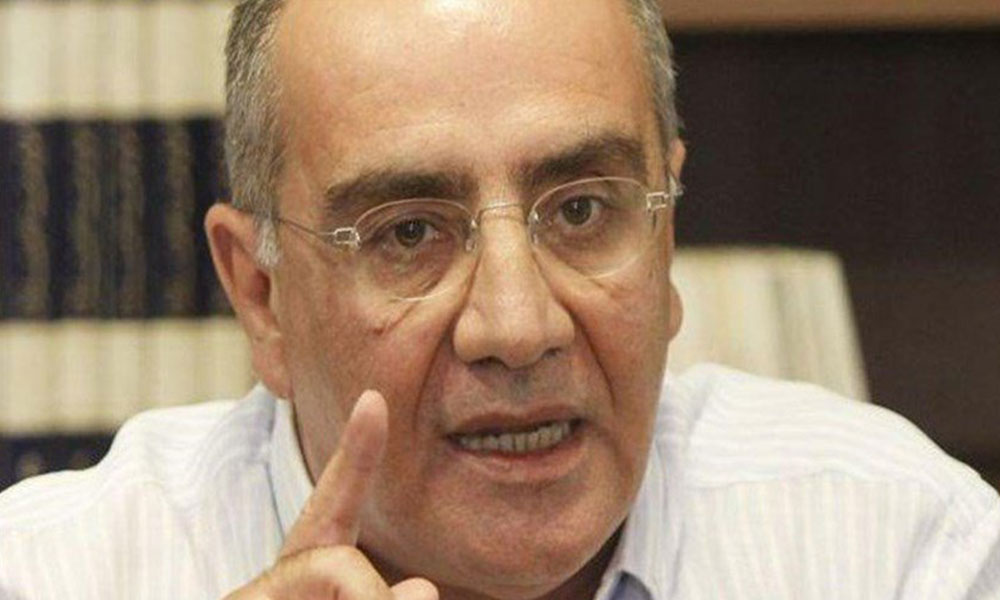The Saudi-Iranian rapprochement was an exceptional event in the region, because it took place between two regional states first, and it revived the political and diplomatic relations that had been severed since 2016 second, and it included terms and conditions that would be under observation between the two parties on the one hand, and under the international eye on the other.
The head of the National Council for Lifting the Iranian Occupation of Lebanon, Fares Saeed, told An-Nahar: “China has succeeded in securing the Saudi-Iranian rapprochement, which will have positive repercussions on the problems of the region, just as the United States of America, according to the head of the National Security Agency, John Kelly He revealed that his country was aware of the ongoing negotiations between Iran and the Kingdom of Saudi Arabia, but it raised questions about Iran’s seriousness regarding compliance with the terms.
Saeed points out that “the American side revealed the existence of provisions in the agreement, and this is an important thing. But the question is: Are these provisions only related to the interest of the Kingdom of Saudi Arabia and the interest of Iran, or are they related in one way or another to what is happening in the region? In a clearer sense, will this agreement have an impact?” In Yemen, Iraq, Syria and Lebanon?
Saeed then asks another question, “What is the future of the military and security arms, which revolve in Iran’s orbit after this agreement, i.e. the Houthis, the popular mobilization in Iraq, Bashar al-Assad’s regime, Hezbollah in Lebanon and Hamas…”.
Saeed believes that “what is important is that the agreement took place between two countries, and not between the Kingdom and militias affiliated with Iran and accepting negotiations under the auspices of China does not mean that the Kingdom has lined up with China, but rather that the Kingdom, led by Prince Muhammad bin Salman, is making good use of its diplomatic cards at this stage.
In this context, Saeed recalls the financial initiatives undertaken by the Kingdom, such as placing one billion dollars in the central bank in Yemen, 5 billion in Turkey, and 480 million dollars in Ukraine, steps that confirm that the Kingdom of Saudi Arabia’s investment in the region is an investment towards stability, while Iran’s investment in The region was in the direction of manipulating stability. So the question now is: Will this agreement end the manipulation of stability by the Iranian side?
The reasons for Iran’s acceptance of the terms and negotiations raise signs of doubt, given the important item in it, which is non-interference in the affairs of the countries of the region; This contradicts the essence of its Islamic project.
In this context, Saeed believes that strategic mistakes committed by Tehran made it soften its positions:
1- Its entry into the war line between Russia and Ukraine
2- It placed itself in the face of the Arab Gulf, the Gulf Cooperation Council and the Arab League…
3- The internal economic and political crisis and the continuation of the internal uprising.
Iran may be buying time, but even if this is true, according to Saeed, it is an Iranian step that is classified as a retreat in the face of the Arab and international impulse.
Saeed does not see a change in the presidential issue. “However, it is better for the opposition to confirm that the Iranian-Saudi agreement did not happen at the expense of the sovereignty of Lebanon, and that the battle for presidency continues. Whatever happens at the regional level, the Lebanese option at home remains a clear one.”
Saudi Foreign Minister Prince Faisal bin Farhan was less optimistic on the impact of Iranian , Saudi ties on Lebanon. He said Friday that “Lebanon needs Lebanese rapprochement, not Iranian-Saudi rapprochement,” a few hours after Tehran and Riyadh announced a reconciliation agreement.
“Lebanon must seek its interest and politicians must put the Lebanese interest before any other interest,” Bin Farhan told Al-Arabiya TV.
“When this happens and when a decision is taken in Lebanon to put the Lebanese interest first and work on building the Lebanese state, Lebanon will certainly prosper and the kingdom will be by its side,” he added.
Said asserts that “there is no fear of any Sunni-Shia agreement that will exclude Christians in the future from the Lebanese decision-making circles. The presence of Christians and the strength of their presence and survival is not caused by the Sunni-Shiite divergence. Sunni – Shiite for the interest of Lebanon and the love of Lebanon, and we are with them and on their side.
An Nahar


Leave a Reply
You must be logged in to post a comment.